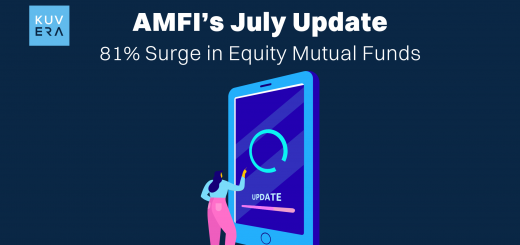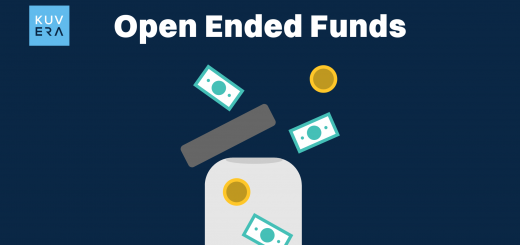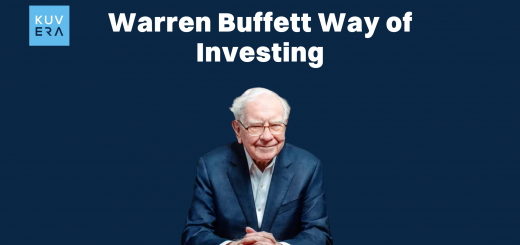You might not realise, but you might already be aware of risk in mutual funds.
Heard this before?
“Mutual Fund investments are subject to market risks; read all scheme-related documents carefully….” We’ve all seen or heard this disclaimer before, but what does this mean?
It simply means, just like any other investment product, risk in mutual funds is not uncommon. When it comes to mutual funds, you might think about the exciting potential for higher returns, the ups and downs of the market, or just the confusion of choosing where to invest.
Let’s take a closer look at risk in mutual funds and explore the various types of risks involved in mutual funds. We’ll break it down into two main areas, equity and debt, and also discuss some generic risks. Don’t worry—knowing about these risks can help you make informed decisions and navigate your investments more confidently.
Ready to learn more about Mutual funds investing? You get started here.
Risks in Mutual Funds of Different Types
1. Equity Funds
Equity funds invest in stocks, aiming for long-term capital appreciation. They’re known for their high-risk, high-reward investments, and come in various categories including large-cap, mid-cap, small-cap, multi-cap and sectoral/thematic funds.
Here are some key risks associated with equity funds:
a. Market Risk: This is the risk that the value of investments may decline due to market fluctuations. Since equity funds are directly impacted by stock market volatility, their value can swing up or down unpredictably—like riding a rollercoaster.
b. Concentration Risk: If a fund is heavily invested in a single stock or sector, its performance can be significantly affected by the performance of that stock or sector. It’s like putting all your eggs in one basket—if your basket falls, all your eggs are at risk.
c. Liquidity Risk: This is the risk that the fund may not be able to sell its securities quickly enough to meet redemption requests. During market stress, it may be difficult to sell certain stocks without affecting their price. This can impact the fund’s ability to provide timely redemptions to investors.
d. Event Risk: Major events like economic downturns, political instability, or natural disasters can have a significant impact on the stock market and, consequently, equity funds. Think of it as an unexpected storm that ruins your picnic. The COVID-19 pandemic or election results are some examples of event risks.
e. Fund Manager Risk: The performance of an actively managed fund depends on the fund manager’s skills, style of management, bias and decisions. If the manager’s decision or biases lead to poor investment choices, the fund performance can suffer. For example, if a fund manager prefers growth stocks that are currently out of style, then they might underperform the index.
Start investing in Index Funds.
2. Debt Funds
Debt funds invest in fixed-income securities like bonds, government securities, corporate debt, and other money market instruments. These funds lend money to governments or companies, and in return, they receive interest payments. These are further classified into 16 sub-categories that include schemes like Overnight Fund, Liquid Fund, Long Duration Fund and Medium Duration Fund.
Although investments in fixed-income assets like debt funds are usually considered less risky than equity, there are a few risks associated with these funds that need to be noted.
a. Credit Risk: This is the risk that the issuer of the bond (like a company or government) might not be able to pay back the interest or the principal amount. If the issuer defaults, the value of the bond can drop, and you might lose part of your investment.
b. Interest Rate Risk: Changes in interest rates will change the value of the bonds in the fund. When interest rates rise, bond prices usually fall, and vice versa. Bonds with longer maturities and duration witness higher price fluctuations compared to those with shorter maturities.
c. Liquidity Risk: This risk arises if the fund cannot sell its securities quickly enough to meet redemption requests. If many investors withdraw their money at the same time, the fund might have to sell its bonds at a lower price, leading to potential losses.
d. Reinvestment Risk: The risk that the returns from interest payments or matured bonds cannot be reinvested at the same rate as the original investment. If interest rates fall, the fund might have to reinvest at lower rates, reducing overall returns.
e. Inflation Risk: Inflation can erode the purchasing power of the returns. If inflation is higher than the returns from your debt fund, the real value of your earnings may decrease.
Other Types of Risk In Mutual Funds:
a. Regulatory Risk: In the world of mutual funds, regulatory risk arises when laws or regulations governing investments change. This can affect everything from the tax benefits to the types of investments a fund can hold.
b. Political Risk: It stems from political events or instability in a country, such as elections, policy changes, or even geopolitical tensions. These events can create uncertainty and affect market stability, leading to fluctuations in your mutual fund’s value.
c. Currency Risk: For mutual funds investing in international markets, changes in exchange rates can impact returns. If the currency of the country where your investments are made weakens against your home currency, your returns could take a hit—even if the investments themselves perform well.
How to Mitigate Risks in Mutual Funds When Investing
So, we just learned about what are the risks in mutual funds. But is there a way to mitigate them? Yes, there are ways to mitigate any risk involved in mutual funds investing.
Mitigating risks in mutual fund investing requires a strategic approach. Diversification, asset allocation, maintaining an emergency fund, and opting for passive index funds are all crucial tactics. Let’s understand a bit more about each of these:
1. Diversification: It is the financial equivalent of not putting all your eggs in one basket. By spreading your investments across various asset classes, sectors, and geographies, you minimise the impact of any single investment’s poor performance on your overall portfolio.
2. Asset Allocation: It is about deciding how to divide your investments among different asset categories, such as stocks, bonds, and cash. The right mix depends on your risk tolerance, investment goals, and time horizon. For instance, a young investor might lean towards a higher proportion of stocks for growth, while someone nearing retirement might prefer more bonds for stability.
Read more about asset allocation here!
3. Keep an Emergency Fund: Having an emergency fund means you won’t have access to your investments during a financial crunch, which can be particularly detrimental if the market is down. This reserve provides peace of mind and keeps your investment strategy intact, allowing your investments to grow uninterrupted.
4. Opt for Passive Index Funds: Riding the Market Waves: Passive index funds are designed to mirror the performance of a specific market index, such as the Nifty 50 or S&P 500. Unlike actively managed funds, which aim to outperform the market through frequent trading and stock picking, passive funds simply aim to match the market’s performance. This approach typically results in lower fees and reduces the risk of underperformance due to manager error.
Wrapping up!
So, next time you are looking for low risk high return mutual funds in India, understand that it’s not that simple. Investing in mutual funds can feel like navigating through a maze. The path to your financial goals isn’t always clear, and risks can lurk around every corner. But with these strategies, you can mitigate these risks and work towards your financial goals more effectively. Start investing now!
Interested in how we think about the markets?
Read more: Zen And The Art Of Investing
Watch here: Investing In Passive Funds
Start investing through a platform that brings goal planning and investing to your fingertips. Visit kuvera.in to discover Direct Plans of Mutual Funds and Fixed Deposits and start investing today.
AREVUK Advisory Services Pvt Ltd | SEBI Registration No. INA200005166
DISCLAIMER: Mutual Fund investments are subject to market risks. Read all scheme related documents carefully. Registration granted by SEBI, membership of BASL (in case of IAs) and certification from NISM in no way guarantee performance of the intermediary or provide any assurance of returns to investors. Investments in securities market are subject to market risks. Read all the related documents carefully before investing. The securities quoted are for illustration only and are not recommendatory.












